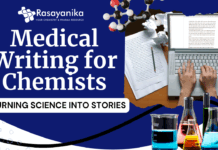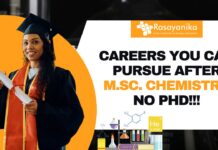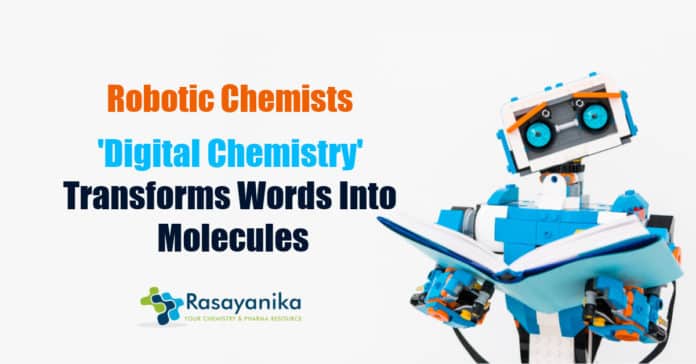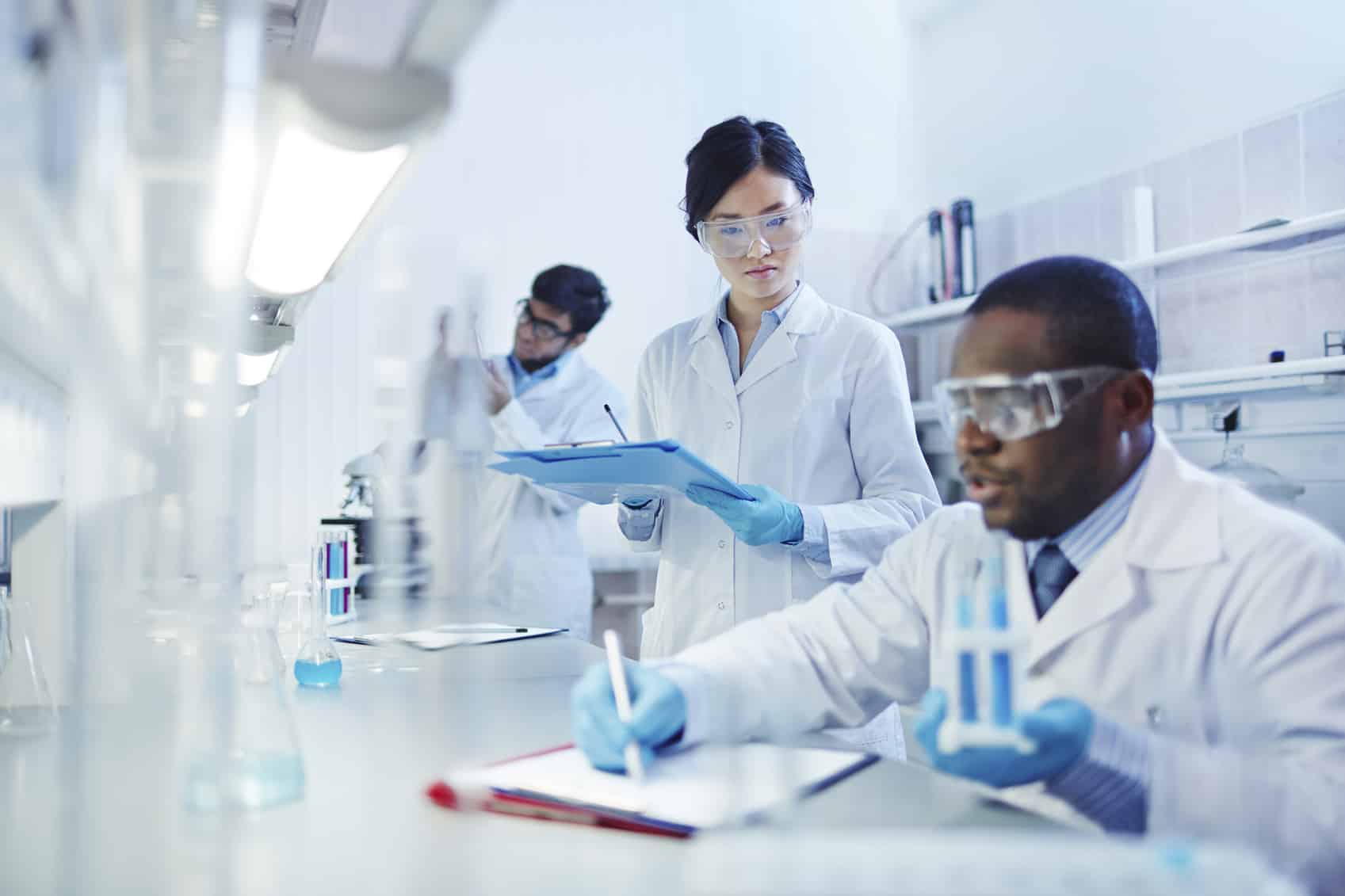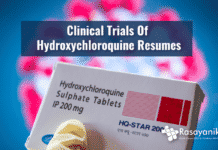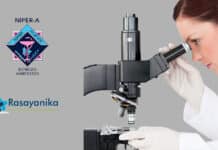Breakthrough – ‘Digital chemistry’ transforms words into molecules
Scientists discover a new system with the ability to automatically turn words into molecules on-demand – opening up the digitalization of chemistry.
The system was developed by a team from the University of Glasgow’s School of Chemistry, United Kingdom. They assert that it will end up in the development of a “Spotify for chemistry” – a huge online storehouse of downloadable recipes for important molecules including medications.
The development of such a system can aid establishing countries much more easily access medicines, allow a lot more reliable global clinical collaboration, and also sustain the human expedition of space.
The study group led by Prof Lee Cronin has actually set the fundamental work for digital chemistry with the advancement of a “chemical processing unit”. The chemical processing unit is a budget-friendly desktop-sized robot chemist that can do the repetitive and time-consuming work of producing chemicals. Additionally, other robotic chemists, developed with various operating systems have been created.
Till this time, those robot chemists have actually needed a substantial quantity of programming from their human equivalents, with thorough guidelines. Presently, the trouble is that there is no conventional programming language for chemistry, suggesting that
programs made for one robot do not work with any other kind.The results of the study are released in the journal Science. The paper has described a global approach to digitalizing chemistry, consisting of a programming system that might eliminate the large majority of the initiative needed to program the robotics.
By taking advantage of the power of natural language processing, the team has actually discovered a way to develop new sets of instructions for robotic chemists. A computer system program called SynthReader to scan through scientific papers and identify sections that layout processes for organic and inorganic chemical synthesis were developed by the team. Synthreader instantly separates those processes into basic directions as well as stores them in a format – Chemical Description Language, or XDL (a new open resource language for describing the material and chemical synthesis).
Any chemical robot can read the chemical guidelines in the XDL format. The scientists constructed a user-friendly interface named as ChemIDE to unite any kind of robotic chemist system and permit the XDL guidance to be converted into chemicals. Making sure that the tools the robot requires to produce the molecules are set up perfectly is the only human input required.
The study explains how the scientists utilized the system to scan clinical documents as well as generate twelve various molecules utilizing the chemical processing unit, consisting of the fluorinating agent AlkylFluor, the Dess-Martin periodinane oxidation reagent, and the analgesic lidocaine.
What they have managed to do with the advancement of their ‘Chemical Spotify’ is something comparable to cutting a compact disc right into an MP3. They take data saved in a physical style, in this case, a scientific paper, and draw out all the information required to produce a digital document that can be played on any system, in this instance any kind of robot chemists, including their robotic system which is an order of magnitude lower expense than any other comparable robots.
They are wishing that the system they have constructed will greatly increase the abilities of robot chemists and also permit the creation of a large data source of molecules drawn from hundreds’ worth of scientific documents. Their system, called Chemify, can read and also run XDL files that have actually been shared among individuals. Placing that sort of knowledge straight in the hands of people with access to robotic chemists could aid medical professionals to develop medicines on-demand in the coming time. This can even suggest that future manned missions to Mars can take raw chemicals with them and make whatever they require there, said Professor Lee Cronin, Regius Professor of Chemistry, University of Glasgow.
Breakthrough – ‘Digital chemistry’ transforms words into molecules
Author: Sruthi S











